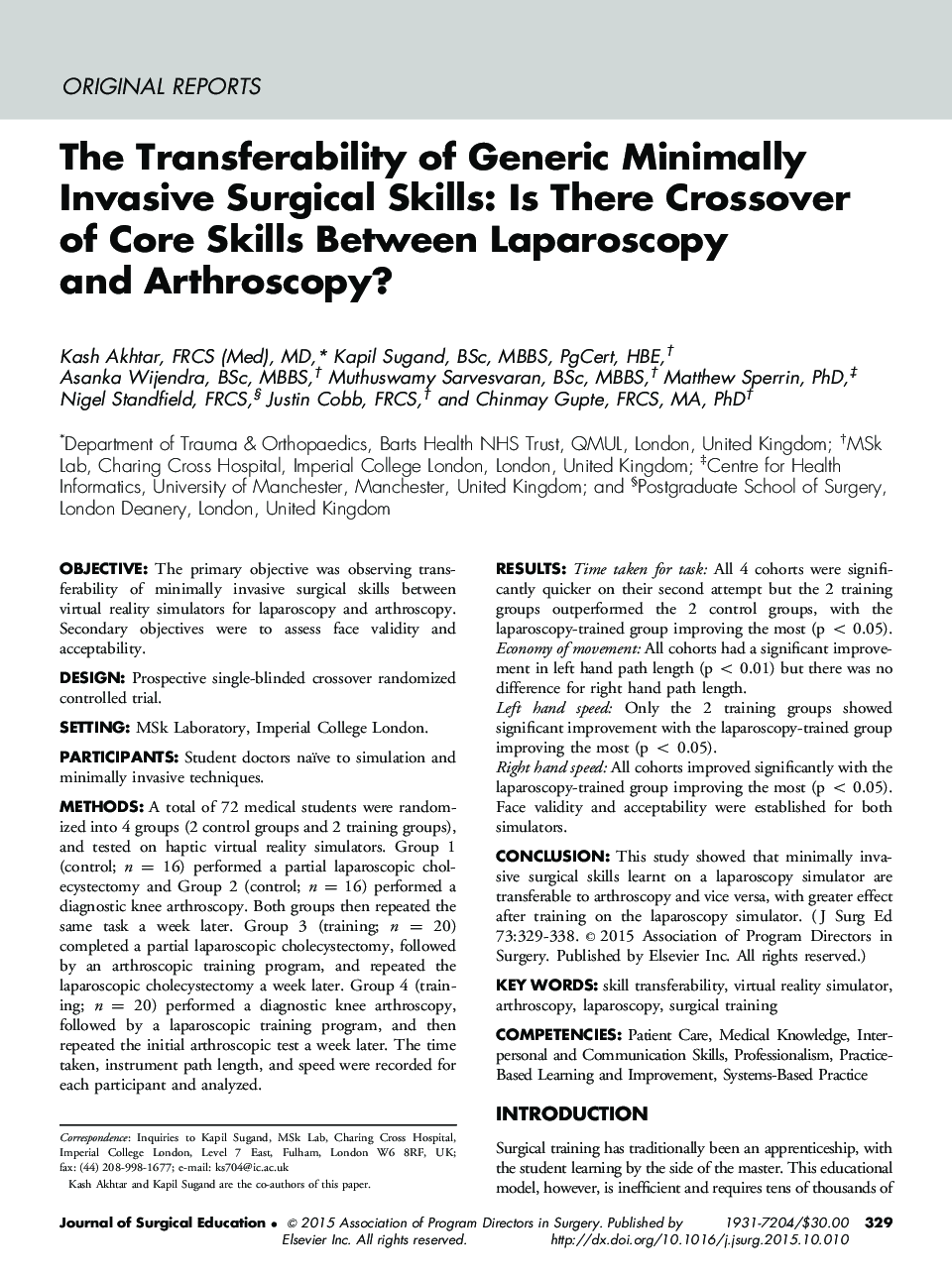| Article ID | Journal | Published Year | Pages | File Type |
|---|---|---|---|---|
| 4297827 | Journal of Surgical Education | 2016 | 10 Pages |
ObjectiveThe primary objective was observing transferability of minimally invasive surgical skills between virtual reality simulators for laparoscopy and arthroscopy. Secondary objectives were to assess face validity and acceptability.DesignProspective single-blinded crossover randomized controlled trial.SettingMSk Laboratory, Imperial College London.ParticipantsStudent doctors naïve to simulation and minimally invasive techniques.MethodsA total of 72 medical students were randomized into 4 groups (2 control groups and 2 training groups), and tested on haptic virtual reality simulators. Group 1 (control; n = 16) performed a partial laparoscopic cholecystectomy and Group 2 (control; n = 16) performed a diagnostic knee arthroscopy. Both groups then repeated the same task a week later. Group 3 (training; n = 20) completed a partial laparoscopic cholecystectomy, followed by an arthroscopic training program, and repeated the laparoscopic cholecystectomy a week later. Group 4 (training; n = 20) performed a diagnostic knee arthroscopy, followed by a laparoscopic training program, and then repeated the initial arthroscopic test a week later. The time taken, instrument path length, and speed were recorded for each participant and analyzed.ResultsTime taken for task: All 4 cohorts were significantly quicker on their second attempt but the 2 training groups outperformed the 2 control groups, with the laparoscopy-trained group improving the most (p < 0.05).Economy of movement: All cohorts had a significant improvement in left hand path length (p < 0.01) but there was no difference for right hand path length.Left hand speed: Only the 2 training groups showed significant improvement with the laparoscopy-trained group improving the most (p < 0.05).Right hand speed: All cohorts improved significantly with the laparoscopy-trained group improving the most (p < 0.05).Face validity and acceptability were established for both simulators.ConclusionThis study showed that minimally invasive surgical skills learnt on a laparoscopy simulator are transferable to arthroscopy and vice versa, with greater effect after training on the laparoscopy simulator.
